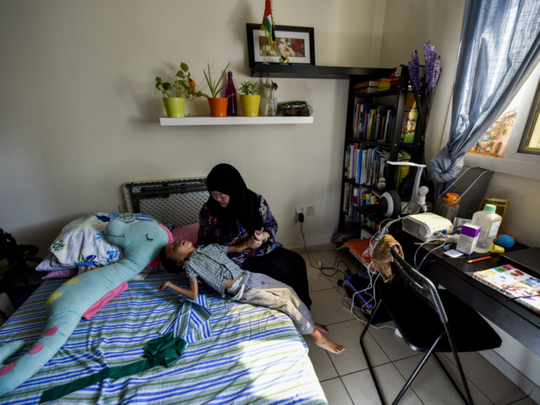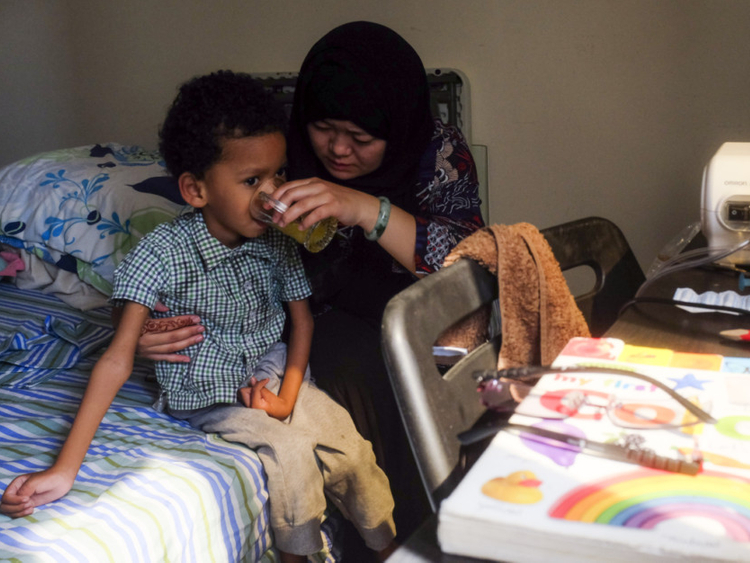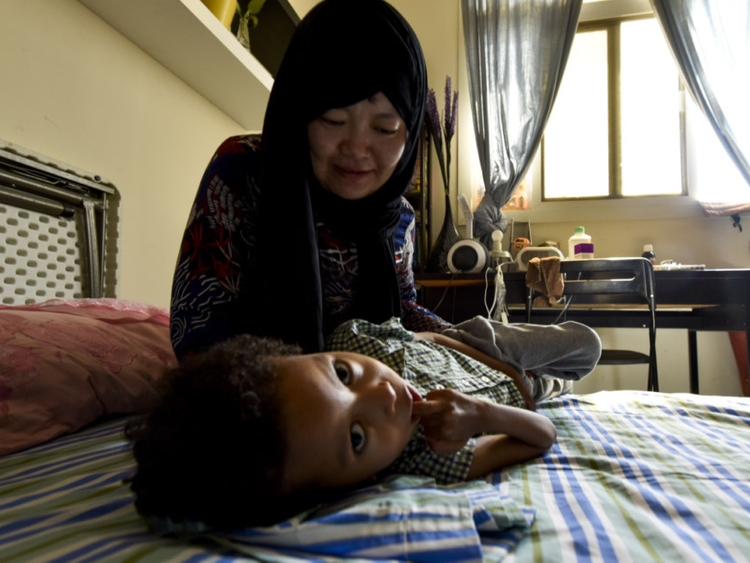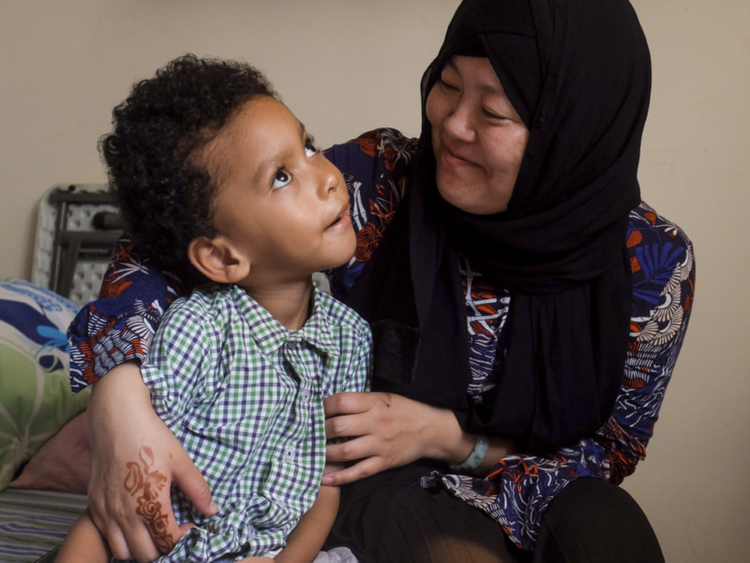
Dubai: Jamila Xin Jin is holding on to the last thread of hope to help her once healthy child recover from a head trauma that has left him mentally and physically debilitated.
The Chinese single mother, 30, who struggles to make a living, says her six-year-old son’s life depends on intensive treatment and rehabilitation, which she cannot afford as a part-time worker living off low commissions from selling promotional items.
Her son, Abdullah Jinshan Ao, a small-built and frail young boy who is bed-ridden and can only sit when supported, has significant motor and communication deficits as a result of an injury in the playground of their house in China when he was 18 months old.
“He was only one and a half years old. He was playing outside the house under the supervision of his nanny when he fell hard on his head. I don’t know what exactly happened, but the nanny did not report the incident to us and ran away. By the time we found out, which was a month later, he had already developed seizures and had difficulty breathing,” said the grief-stricken mother.
A delayed surgery in China to remove a blood clot in the head was meant to give Jinshan a better future, but instead his health went downhill after the surgery, she said. “I was desperate to save my son and took him to another city in China to understand why his health was getting worse, and it appeared that surgery had caused further damage to his brain and he required immediate treatment,” said Xin Jin, whose abusive ex-husband had left for the US with promises that he would use Jinshan’s treatment money to find him a good doctor but later disappeared leaving both Xin Jin and her son alone.
According to a medical report by the Saudi German Hospital, Jinshan was found to have generalised brain atrophy with congenital hypoplasia of the cerebellum and both cerebral hemispheres. The cerebellum is a region of the brain that plays an important role in motor control and hypoplasia signifies maldevelopment of this region.
A doctor’s recommendation in 2015 was for Jinshan to be put on a course of medication to stimulate his brain cell function and to put him on a learning programme in a special needs centre with paediatric physiotherapy and speech training programme.
“I moved to Dubai two years ago because I had not received any support back home, and I wanted to start a new life and career here. My son has a potential to develop and I have hope that he will get the necessary help here.”
A Dubai-based charity helped Jinshan undergo a seven-month costly treatment until August in Healthcare City, which included physical and occupational therapy, hyper oxygen therapy, and other treatments to develop his muscles. Xin Jin had also enrolled him in Al Noor Training Centre to develop his sensory skills, but now she struggles to continue both the treatment and rehabilitation.
“It costs Dh100,000 for a sixth-month treatment of this kind to help my child develop and Dh45,000 per semester at the training centre. He has been off his treatment since August 2016 and now I don’t have money to pay his fees at the training centre.”
Xin Jin, who holds a degree in arts, says she sometimes cannot afford to pay her rent or bills.
“I’m under so much pressure trying to manage my work and caring for Jinshan who needs full-time assistance. I’m 30 but I look 45, she said. “I know my son can recover, maybe not fully, but doctors told me that the golden period for him to improve is before the age of seven. Jinshan is smart and ready to learn, but delays in his treatment will shatter the dreams I have for him.”
Xin Jin said her husband’s decision to leave them was cruel. “My husband destroyed me after he left. I’m doing my best to improve my son’s health condition so he can survive when he is older.”










